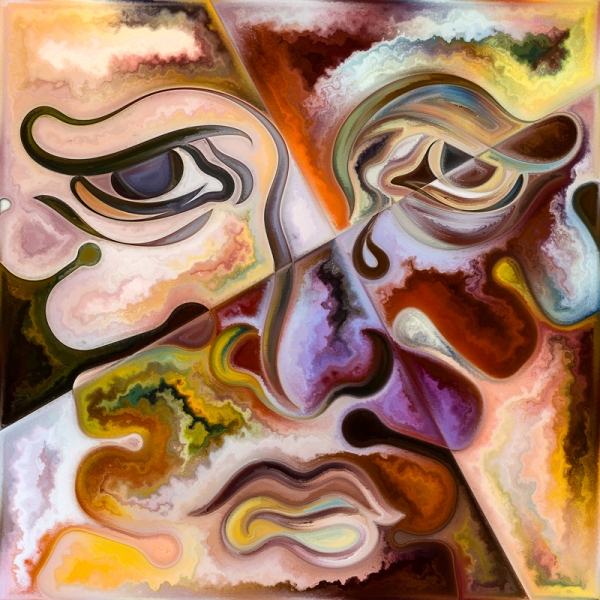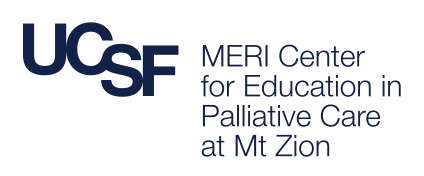Invisible Losses: Secondary Trauma, Survivor Guilt and Moving Through the COVID-19 Crisis

Invisible Losses:
Secondary Trauma, Survivor Guilt and Moving Through the COVID-19 Crisis
Michael W. Rabow, MD & David Bullard, PhD
San Francisco, CA
Updated: April 29, 2020 3:45 pm
The world is suffering deep losses in the COVID-19 pandemic. Already, millions are infected, hundreds of thousands killed, a global economic disaster and all the suffering that accompanies it. And even if you yourself are not infected with this virus, even if you haven’t lost your business or your job, even if no one in your family is sick or has died, we all are affected.
For almost everyone, there is anxiety, fear, and, at least some of the time, a sense of helplessness and hopelessness. In charts and tables, in town halls and zoom meetings, in videos and photographs, our news and social media document real losses in painful and visible detail. And, for almost everyone, there also are invisible losses.
This is the “Both/And” virus. It is true both that many have already died, and that the majority will not. It is true both that some have lost everything, and that some will only know the greatest suffering second-hand. Many of us are being hurt by what is happening in our world, and also by what has not happened. Indeed, there is pain and loss even in what we escape.
We are professional caregivers, usually drawn to this calling from a deep sense of responsibility for others, often taking oaths and making deeply personal and celebrated public promises to care for the ill. Even when uninfected ourselves, we know the names of the overwhelm for which we are at risk. Numbing and Compassion Fatigue are when emotional and physical exhaustion sap our ability to empathize or to feel compassion. Compassion Fatigue can be the unwanted, uninvited cost of caring. Repeatedly now in the time of COVID, we are advised (appropriately so) by a series of platitudes that are, none-the-less, absolutely true: “put on our oxygen mask first,” “prioritize on self-care,” especially as we reckon with the fact that “this is a marathon, not a sprint.” We must sustain for the long-haul, or at least refuel for the next wave.
We can be hurt by what we bear witness to in others. In caring for our patients, we can experience Secondary Trauma. Repeatedly seeing and hearing about, working to ameliorate or treat the traumatic losses experienced by others, we are at risk of being traumatized ourselves, going beyond just empathy for another’s pain to an actual vicarious experience of suffering and trauma.
Here in the San Francisco Bay Area, with our flattened curve and our comparison to New York City, some of us are developing Survivor Guilt, an unfounded sense that we have done something wrong by not being infected or even by surviving an infection with COVID. We are hurt by what has not hurt us. This feeling can be both rational and irrational, conscious and unconscious. Literally and figuratively, our brothers and sisters, our spouses and life-partners, our grandparents, parents and children, at home, across the street, the country, and the globe, are dying of what we have escaped. And, sitting in a quiet room in front of our computers and smartphones, many of us feel guilty about not doing enough. For some, there is guilt about not using the “time off” in the lockdown productively to learn to bake bread, speak Spanish, or be a better parent. Professional caregivers, in particular, can feel guilt and even shame about not being on the front lines of the pandemic, rolling up our sleeves and “doing our part” alongside our colleagues, the real heroes out there being exhausted, pushed to the brink, even dying for the cause.
We can even experience another invisible but well-documented emotional response—unconscious Survivor Guilt-- whose outward manifestations are thoughts that act as tools for self-punishment, a common response to the perception that we have fallen short of our natural and even hyper sense of responsibility for the lives of others. Rumination and worry are exaggerations of thoughtful self-reflection, and contribute to feelings of unease and depression, distorting the natural sadness and grieving that are inherent in our humanity, and robbing us of joy and delight in our own present moments of precious living.
And here again, the advice is repeated. Though it has become commonplace, even cliché, it remains true: recognize your feelings are normal (and common); realize you are not exempt and there will be time still for us all to feel losses that we might deem big enough; and, if you can, pay it forward. If you have had good fortune, you can dedicate yourself to having your life and work be an honor to those who have not had such luck. Let yourself find moments of peace, connection, joy and love; they can be valuable treatments for the wide world of pain and suffering.
Ultimately, be gentle with yourself. Be compassionate to yourself for the losses that anyone might see in your life, for the invisible suffering only you can feel, and for your place in the misery of what has befallen us all in a million inexplicable ways.
Whether on the frontlines or the sidelines, kindness and taking care of yourself allow you to be compassionate with and to provide deep help to others. Kindness and self-care, most of all, allow us to see the sacrifices and contributions that we and so many are making and to feel our connection to all humankind.
A poem about what we can and cannot do
March 17, as sheltering-in-place was starting, poet Jane Hirshfield wrote this poem, “Today, When I Could Do Nothing.”
Today, when I could do nothing,
I saved an ant.
It must have come in with the morning paper,
still being delivered
to those who shelter in place.
A morning paper is still an essential service.
I am not an essential service.
I have coffee and books,
time,
a garden,
silence enough to fill cisterns.
It must have first walked
the morning paper, as if loosened ink
taking the shape of an ant.
Then across the laptop computer-warm-
then onto the back of a cushion.
Small black ant, alone,
crossing a navy cushion,
moving steadily because that is what it could do.
Set outside in the sun,
it could not have found again its nest.
What then did I save?
It did not move as if it was frightened,
even while walking my hand,
which moved it through swiftness and air.
Ant, alone, without companions,
whose ant-heart I could not fathom-
how is your life, I wanted to ask.
I lifted it, took it outside.
This first day when I could do nothing,
contribute nothing
beyond staying distant from my own kind,
I did this.
For those who are looking for help:
UCSF has designed a new program for UCSF faculty, staff and trainees to provide additional support to our valued colleagues who are experiencing anxiety, stress and distress related to the Covid-19 pandemic and its impact on their work and family life.
After completing a brief online screening, you will receive information about web-based resilience self-tools which include online resources, self-care apps and webinars
If you request person-to-person contact through the tool, you will be provided information on how to schedule an appointment for further assessment and treatment with a UCSF Langley Porter specialist or information on how to access a non-UCSF provider if you would prefer.
If you would like help with substance use, you will be connected with Bright Heart Health, which is a telehealth treatment program not affiliated with UCSF.
UCSF Cope https://tiny.ucsf.edu/cope or text COPE to 839-73
More information is available: https://coronavirus.ucsf.edu/emotional-health-wellbeing-resources (right sidebar - Resources and the section on Coping)
